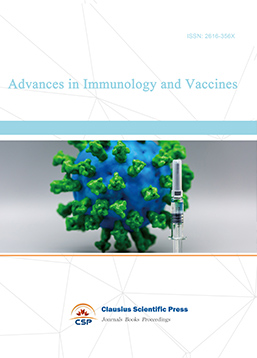Multiple Factors Analysis of Cox Regression Model for Colon Cancer: Based on SEER Database
DOI: 10.23977/phpm.2022.020407 | Downloads: 22 | Views: 1609
Author(s)
Yuxiao Fang 1
Affiliation(s)
1 Faculty of Biotechnology and Food Science, Tianjin University of Commerce, Tianjin, China
Corresponding Author
Yuxiao FangABSTRACT
The mortality of colon cancer has been high and the cancer threatens people’s health. It is necessary to acknowledge the risk factors of colon cancer and enhance the prognosis of colon cancer. Method: Surveillance, Epidemiology and End Results (SEER) database whose data of colon cancer has 44,052 samples from 1975 to 2019 were adopted for analysis, and their independent risk factors were selected by using cox multiple factors analysis, evaluating the model by using the concordance index, and finally presenting the results by using a nomogram. Result: The results of the analysis showed that age, race, T-stage, N-stage, and M-stage were independent factors affecting the incidence of the colon cancer. About racial factor, survival was higher in other races than in whites and in whites than in blacks. About age factor, the chance of survival was significantly lower for patients after 60 years of age. Conclusion: For colon cancer patients, age and race are important factors that threaten their survival. Black races and middle-aged and older adults after age 60 need to be screened regularly for their risk of developing colon cancer. The findings of this study will help patients' prognosis, help them screen for their own cancer risk, and work to reduce the incidence and mortality of colon cancer.
KEYWORDS
Cancer, SEER, colon cancer, regression analysisCITE THIS PAPER
Yuxiao Fang, Multiple Factors Analysis of Cox Regression Model for Colon Cancer: Based on SEER Database. MEDS Public Health and Preventive Medicine (2022) Vol. 2: 47-53. DOI: http://dx.doi.org/10.23977/phpm.2022.020407.
REFERENCES
[1] Siegel Rebecca L., Miller Kimberly D., Goding Sauer Ann, et al. Colorectal cancer statistics, 2020 [J]. CA: A cancer journal for clinicians, 2020, 70(3): 145-164.
[2] Xue SQ, He J, Tang Y. Advances in colon cancer treatment [J]. China Pharmaceutical Science, 2022, 12(09): 58-61.
[3] About the SEER Program [EB/OL] [2022-9-29]. https://seer.cancer.gov/about/
[4] Cai Meng. A Review of Survival Analysis Theory and Its Application Research [J]. Value Engineering, 2016, 35(10): 19-21.
[5] Stel V S, Dekker F W, Tripepi G, et al. Survival Analysis II: Cox Regression [J]. Nephron Clinical Practice, 2011, 119(3): c255-60.
[6] Nomogram [EB/OL] [2022-9-29]. https://www.britannica.com/science/nomogram
[7] C-Statistic: Definition, Examples, Weighting and Significance [EB/OL] [2022-9-29]. https://www.statisticshowto. com/c-statistic/
[8] About R[EB/OL] [2022-9-29]. https://www.r-project.org/about.html
[9] Shih, S.P. Clinicopathological and survival differences between stage II and stage IIIA colon cancer patients [D]. Fujian Medical University, 2019.
| Downloads: | 5044 |
|---|---|
| Visits: | 314020 |
Sponsors, Associates, and Links
-
MEDS Clinical Medicine

-
Journal of Neurobiology and Genetics

-
Medical Imaging and Nuclear Medicine

-
Bacterial Genetics and Ecology

-
Transactions on Cancer

-
Journal of Biophysics and Ecology

-
Journal of Animal Science and Veterinary

-
Academic Journal of Biochemistry and Molecular Biology

-
Transactions on Cell and Developmental Biology

-
Rehabilitation Engineering & Assistive Technology

-
Orthopaedics and Sports Medicine

-
Hematology and Stem Cell

-
Journal of Intelligent Informatics and Biomedical Engineering

-
MEDS Basic Medicine

-
MEDS Stomatology

-
MEDS Chinese Medicine

-
Journal of Enzyme Engineering

-
Advances in Industrial Pharmacy and Pharmaceutical Sciences

-
Bacteriology and Microbiology

-
Advances in Physiology and Pathophysiology

-
Journal of Vision and Ophthalmology

-
Frontiers of Obstetrics and Gynecology

-
Digestive Disease and Diabetes

-
Advances in Immunology and Vaccines

-
Nanomedicine and Drug Delivery

-
Cardiology and Vascular System

-
Pediatrics and Child Health

-
Journal of Reproductive Medicine and Contraception

-
Journal of Respiratory and Lung Disease

-
Journal of Bioinformatics and Biomedicine


 Download as PDF
Download as PDF